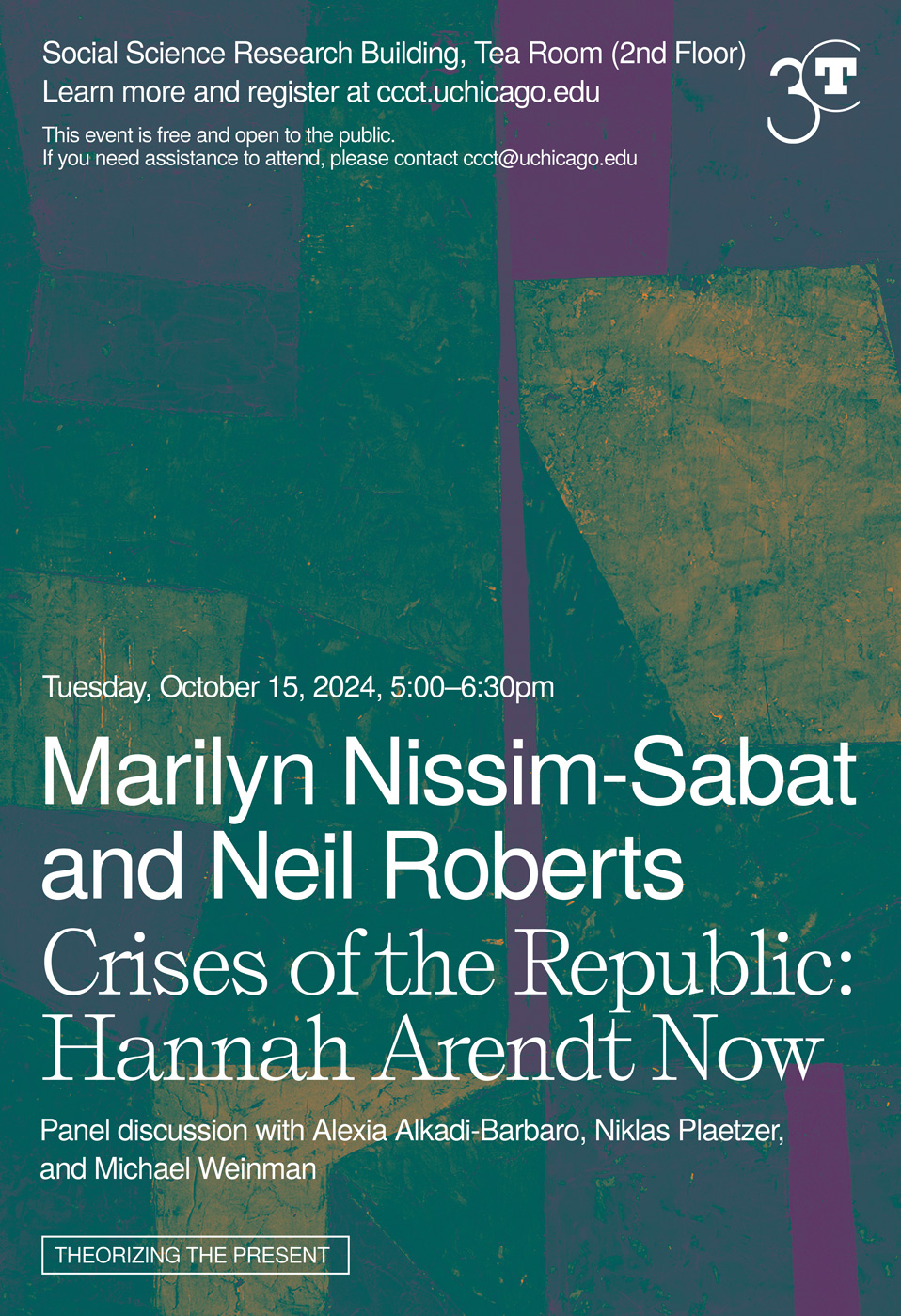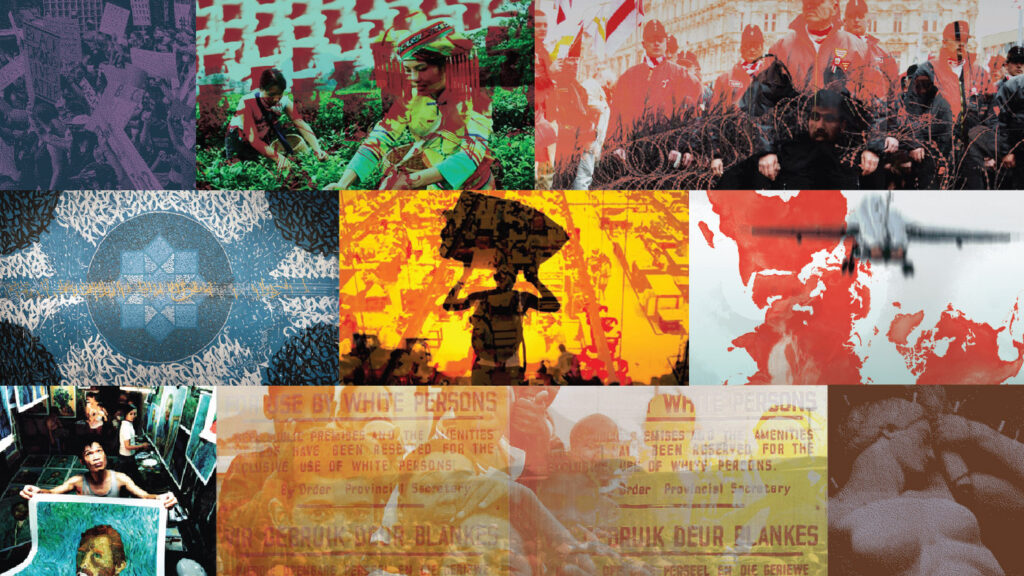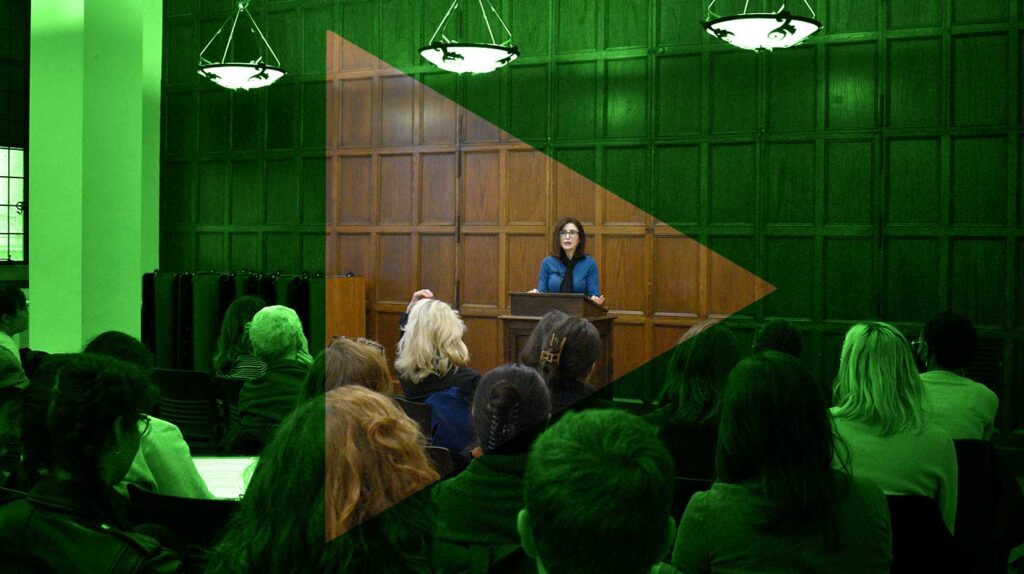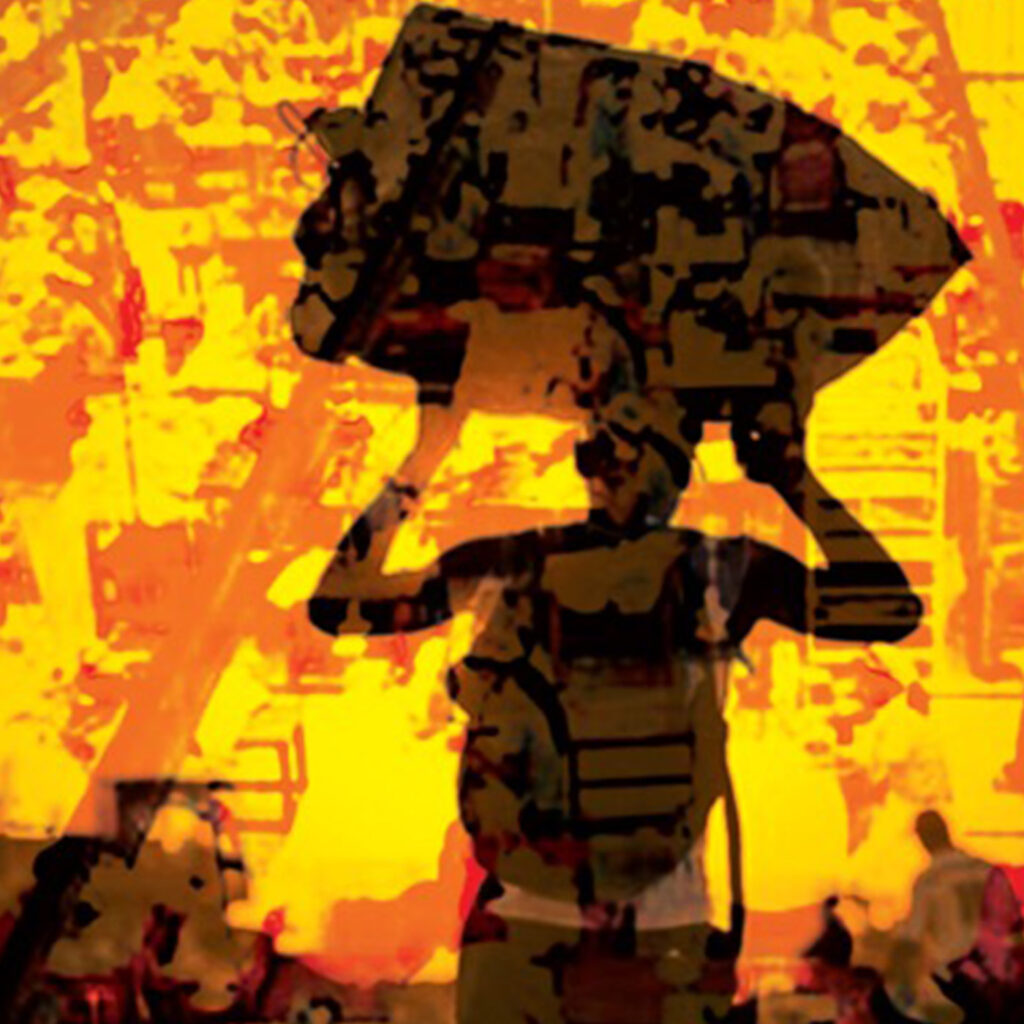Categories
Marilyn Nissim-Sabat and Neil RobertsCrises of the Republic: Hannah Arendt Now
Tuesday, October 15, 2024, 5:00–6:30pmHannah Arendt (1906–1975) understood the loss of stable grounds as a defining condition for political action: “that the thread of tradition is broken and that we shall not be able to renew it” was “the basic assumption” of her work. Against a dominant tradition of Western thought, Arendt’s aim was to “look upon politics with eyes unclouded by philosophy,” exposing inherited categories to the shock of events. Yet rather than a source of despair, Arendt interpreted the “break in tradition” as a generative return to an experience of plurality: “the fact that men, not Man, live on the earth and inhabit the world.” For Arendt, to think politically meant to learn how to view the world from the many perspectives, both past and present, which the weight of the Western tradition had pushed out of view. Arendt’s own writings, however, stood in the shadow of the very tradition that she declared to be broken. Even as her reflections on the loss of grounds resonate with the work of thinkers from the Global South who were likewise wrestling with the foundations of politics after the rupture of continuity, Arendt’s political imagination remained largely confined to a Greco-Roman North Atlantic. If in 1972, she published a series of influential essays under the title Crises of the Republic, what guidance, if any, can Arendt’s thought still offer us today, as we confront the crises of our own time?
Here, Marilyn Nissim-Sabat and Neil Roberts, co-editors of the recent volume Creolizing Hannah Arendt (Rowman & Littlefield, 2024), will be at the University of Chicago to discuss Arendt’s contested and enduring place in contemporary political theory. They will be joined in discussion by Alexia Alkadi-Barbaro, Michael Weinman, and Niklas Plaetzer to reflect on the insights that Arendt’s writings might hold for thinking and acting politically in a world in which the crisis of inherited modes of thought is again felt acutely. Joy Wang will moderate, and 3CT fellow Linda Zerilli will introduce the event.
Marilyn Nissim-Sabat is professor emerita of philosophy at Lewis University and author of Neither Victim nor Survivor: Thinking Toward a New Humanity (Rowman & Littlefield, 2009). She is currently working on a new book, entitled Arendt and Husserl: Phenomenology, Totalitarianism, and the Banality of Evil. Nissim-Sabat has published book chapters on the work of such thinkers as Lewis Gordon, Richard Wright, and Herman Melville and has written numerous book reviews and articles on philosophy and psychoanalysis. With Neil Roberts, she is the co-editor of Creolizing Hannah Arendt (Rowman & Littlefield, 2024).
Neil Roberts is the John B. McCoy and John T. McCoy Professor of Africana Studies, Political Theory, and the Philosophy of Religion at Williams College where he also serves as associate dean of the faculty. He has published widely on modern and contemporary political theory, politics in literature, and theories of freedom. His books include Freedom as Marronage, A Political Companion to Frederick Douglass, and the forthcoming How to Live Free in an Age of Pessimism. With Marilyn Nissim-Sabat, he is the co-editor of Creolizing Hannah Arendt (Rowman & Littlefield, 2024).
Alexia Alkadi-Barbaro is a PhD candidate in political theory at Cornell University. She is completing her dissertation, “Finite Earth: The Politics of Postcolonial Repair,” which recovers visions of postcolonial liberation across the Caribbean, Africa, the Middle East, and the United States as they arose parallel to discourses of climate catastrophe circa 1970 to 2001. Her dissertation recasts understandings of “earth” and “world” through the lens of postcolonial intellectuals, activists, and international institutions grappling with the reality of finite earth, offering an alternative image of political action under seemingly impossible circumstances. Alkadi-Barbaro holds an MPhil in Intellectual History and Political Thought from the University of Cambridge, where she wrote on Hannah Arendt’s engagement with St. Augustine and its implications for Arendt’s concept of the world.
Niklas Plaetzer is a PhD candidate in political theory at the University of Chicago and Sciences Po Paris. Plaetzer’s dissertation aims to rethink transnational forms of democratic power by recovering the institutional projects of plebeian internationalists in the Atlantic World between the 1830s and 1880s. His writings have appeared in Political Theory, Modern Intellectual History, Historical Materialism, and, most recently, in the volume Creolizing Hannah Arendt (ed. by Marilyn Nissim-Sabat and Neil Roberts, 2024). In 2024-2025, he is a Doctoral Fellow at the University of Chicago’s Pozen Family Center for Human Rights.
Michael Weinman is a Senior Lecturer in the Department of Political Science at Indiana University Bloomington and an interdisciplinary scholar and teacher with interests in ancient Greek thought, modern Jewish thought, and the history of political thought, as well as the intersections of these three fields. Weinman is the author or editor of six books, most recently Hannah Arendt and Politics (Edinburgh University Press, 2022), co-authored with Maria Robaszkiewicz, and The Emergence of Illiberalism (Routledge, 2020), co-edited with Boris Vormann. His newest book, The Political Theology of Hannah Arendt, is forthcoming with Edinburgh University Press in 2025.
This event is free and open to the public, and registration is recommended. Please email us at ccct@uchicago.edu if you require any accommodations to enable your full participation.



